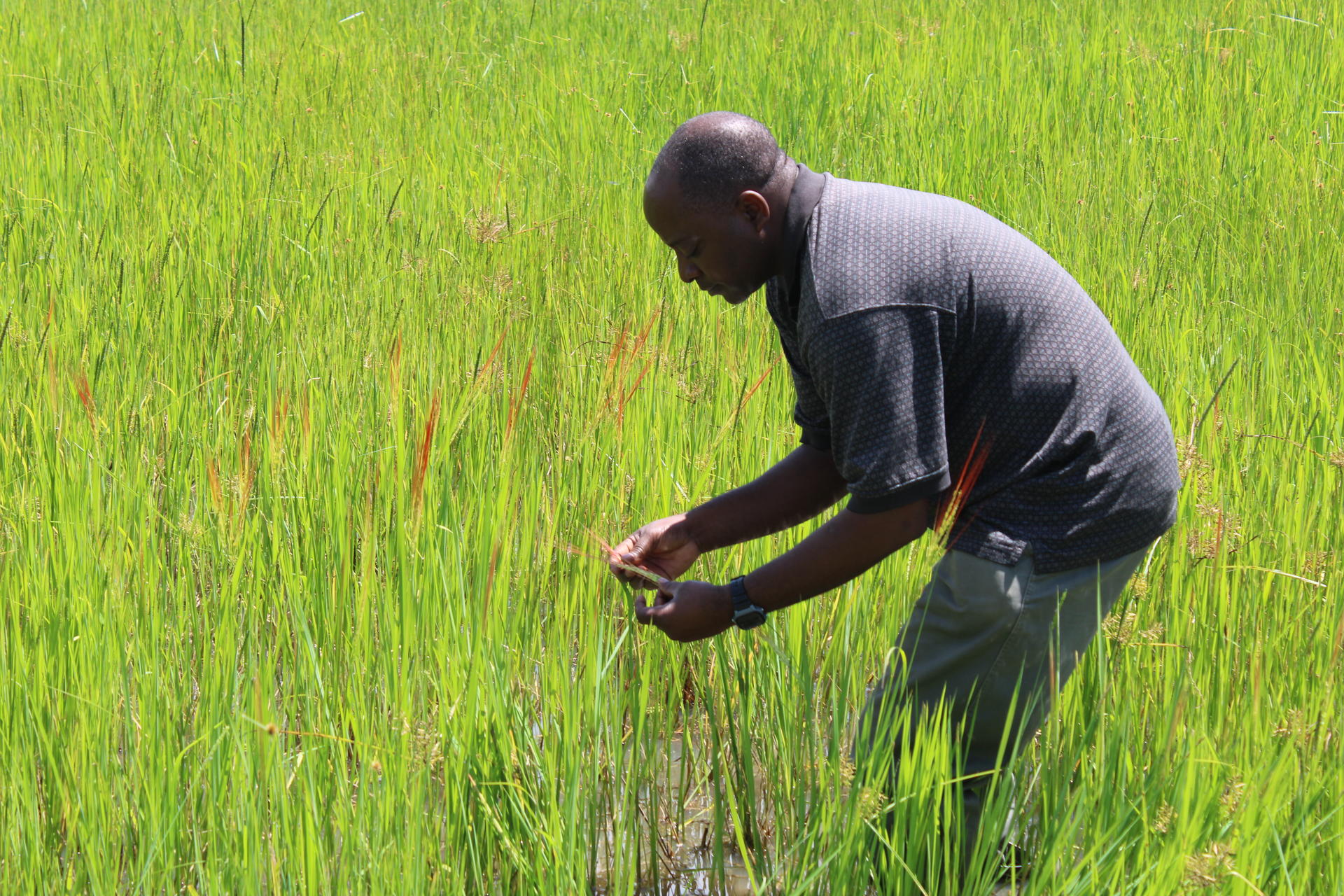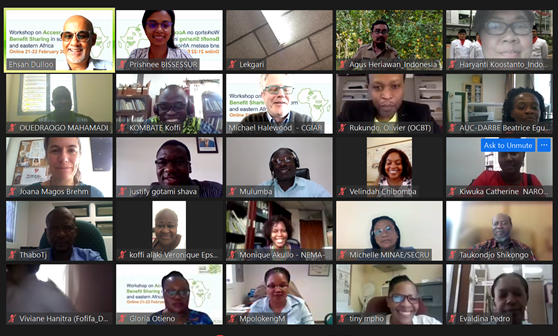Blog Harmonization of Access and Benefit Sharing of Crop Wild Relatives in Eastern and Southern Africa

Oryza spp. in Kafue National Park, Zambia
©ZARI
Crop wild relatives, how to access them and share their derived benefits within the Southern African Development Community (SADC) region and the African continent, were at the heart of the virtual workshop held on 21 and 22 February 2022. This event was organized by the Alliance of Bioversity International and CIAT (Alliance) under the UK Government-funded Darwin Initiative project “Bridging agriculture and environment: Southern African crop wild relative regional network” (DI SADC CWR in short form) together with the SADC Plant Genetic Resources Centre (SPGRC) and in collaboration with the CGIAR Genebank Platform and the secretariats of the Nagoya Protocol unit of the Convention on Biological Diversity and International Treaty on Plant Genetic Resources for Food and Agriculture (ITPGRFA).
This virtual workshop aimed to gather the main stakeholders (from both the agricultural and environmental sector) related to Access and Benefit Sharing (ABS) of in situ wild plants on a common platform to discuss how to harmonize the existing ABS guidelines for a mutually supportive implementation of the Nagoya Protocol and ITPGRFA on the African continent. About 60 participants from 22 countries all over Africa attended the one-and-a-half-day workshop, mainly the national focal points of the ITPGRFA and breeders and a few representatives of the Nagoya Protocol. After the welcome address by the project’s coordinators, Dr. Ehsan Dulloo from the Alliance and Dr. Justify Shava from SPGRC, presentations were given to set the scene on ABS. Mr. Taukondjo Shikongo gave an overview of the Nagoya Protocol, followed by Dr. Kent Nnadozie, who talked about the Multilateral System of ABS under the ITPGRFA. Mr. Dan Leskien shared the ABS elements that have been developed to facilitate the domestic implementation of ABS for different subsectors of genetic resources for food and agriculture.

Participants of the virtual workshop on Access and Benefit Sharing of crop wild relatives in Eastern and Southern Africa
Thereafter, to contextualize ABS on the African continent, Ms. Béatrice Egulu from the African Union Commission highlighted the role of the institution in providing support, funding, and resources through its various programs to different member states. Dr. Michael Halewood, together with Ms. Michelle Andriamahazo from SECRU in Madagascar and Dr. Hartmut Meyer from GIZ, presented their experiences and lessons learned in working with ABS-related issues – developing tools and guidelines, drafting and improving policies, and capacity building.
During the workshop, the DI SADC CWR team shared a draft background document that consisted of a desk review of the ABS laws and regulations of the Southern and Eastern African countries and the results of a survey conducted among the national focal points of the Nagoya Protocol, ITPGRFA, protected area managers, policymakers, breeders, and national plant genetic resources centers.
On the second half day, participants contributed to two working groups – one on benefit sharing and the other on the guiding principles toward harmonization of ABS instruments for their mutually supportive implementation. The first working group discussed how to ensure the sharing of benefits arising from the use of genetic resources in a fair and equitable way, what types of benefits can be derived (monetary and non-monetary) in agricultural research and development, how the benefits will be shared, and how this can be further improved. The second working group discussed a draft resolution on guiding principles for mutually supportive implementation of the ITPGRFA and the Nagoya Protocol. The intent was to provide a set of principles to help countries to develop mutually supportive policies for implementation of ABS under the Nagoya Protocol and the Multilateral System of the ITPGRFA.
During the concluding remarks, Mr. Taukondjo Shikongo, senior program manager of ABS from the Nagoya Protocol ABS unit of the CBD, quoted this African proverb: “If you want to go far, you have to walk alone, but if you want to go farther, you have to walk with others.” He called on the national stakeholders from both the agricultural and environmental sectors to greater coordination and collaboration and to work together to achieve success in mutual implementation of the Nagoya Protocol and MLS of the ITPGRFA. He said, “Inasmuch as we are divided across sectoral disciplinary boundaries, nature does not respond in the same way, and everything is interrelated.” He called for the broadening of stakeholders involved in the discussion of ABS-related issues.
Mr. Olivier Rukundo from the ITPGRFA (CBD Secretariat) commended the efforts of the Alliance and SPGRC in organizing the workshop. He said, “I think it is both timely and useful to have these regular exchanges. On behalf of the ITPGRFA, this is a welcome event that we very much encourage across regions, which we see as very important to support the implementation of the ITPGRFA.” He also reiterated the commitment of the ITPGRFA as a convener to ensure the enhanced participation of the national focal points of the Nagoya Protocol and the ITPGRFA for discussions around the mutually supportive implementation of ABS.
The event enabled sharing of experiences and capacity building on ABS instruments, and strengthened fruitful partnerships among the different regional, continental, and global institutions involved in ABS of plant genetic resources, including crop wild relatives, to take forward the momentum gained toward the mutually supportive implementation of ABS. At the end of the workshop, the participants mentioned that they had a better understanding of what the different ABS instruments were and how they could be used. Ms. Evaldina Pedro from Angola said,
“I could learn more about different aspects, policies, and instruments regarding biodiversity, including crop wild relatives. Thank you again, and I hope Angola will be able to attend this kind of event more efficiently and actively in the future.”
